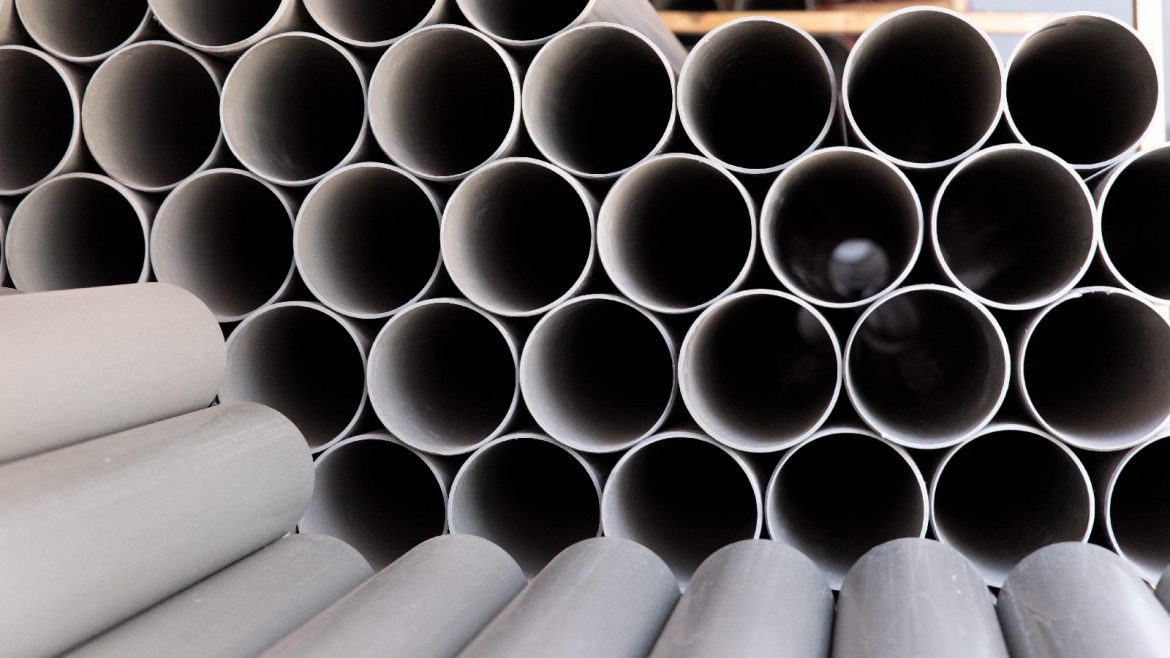More than 1.8 billion metric tons of steel production per year has been recorded worldwide and a significant portion of this production is mild steel pipes. So, mild steel pipe has become a fundamental component of the steel industry.
But what are the mild steel pipes exactly? Why did they become a top choice in steel applications? This blog post will cover the key features of mild pipes and how to select appropriate mild pipes that meet specific requirements.
Key Features
- Mild steel pipes are used in various industrial applications such as construction, infrastructure, and plumbing.
- There are different types of mild steel pipes such as welded, black steel variant, seamless, and galvanized.
- They are long-lasting due to coating or galvanizing.
- Pipe selection depends upon its standards, coating, and thickness.
What Are Mild Steel Pipes?
Mild steel pipes are the most significant and widely used pipes in the steel industry due to their highlighted features of good weldability and flexibility. They are made from low-carbon steel containing carbon that actually plays a role in making them easy to weld.
Properties Of Mild Steel Pipes
Below is the overview of mechanical and physical properties:
- Tensile Strength: 400 – 550 MPa
- Ductility: High you can easily bend and shape
- Rust Resistance: Moderate but you can improve
- Melting Point: 1450°C – 1520°C
- Weldability: Excellent
- Ferromagnetic: Strongly attracted to the magnet
Types Of Mild Steel Pipes
Mild steel pipes are available in various forms according to the needs of different applications. The most common types are the following:
Seamless MS Pipes
They are manufactured without welding and are used in gas, oil, hydraulic systems, and transportation.
Welded MS Pipes
Steel sheets or plates are rolled and the longitudinal seams are welded to create these pipes. The key feature of these pipes is low cost as compared to seamless pipes. They are also available in Electric resistance welded pipes (ERW).
Applications: Water and gas pipelines, structural supports, and general construction.
Galvanized MS Pipes
Galvanized MS pipes are designed to resist rust. To make the pipes resistant they are coated with zinc. This type of mild steel pipe is best for environments where there are corrosive elements and for various outdoor applications.
However, they will still corrode in certain environments such as high-salt, strong acid, and alkaline environments, as zinc coating will be destroyed by chemical reactions.
Applications: Fencing, structural applications, outdoor plumbing.
Black MS Pipes
Black MS pipe, refers to ungalvanized carbon steel pipe. It is a natural dark color of steel after it has been hot-rolled during manufacturing. It is tubular in shape and is used in gas pipelines and Fire sprinkler systems.
Advantages of mild steel Pipes
Increased Strength
Mild steel pipe has relatively low strength, but it can be increased through cold working treatment. So, when strength is required, these pipes can be modified according to the need of a particular application.
Excellent Weldability
These pipes are easy to weld and are commonly required in applications like tubing or piping where the parts are joined with each other.
High Ductility
Mild steel pipes can be easily bent or formed in different shapes without breaking. This feature makes them ideal for use in applications where shapes are required according to infrastructure needs.
Cost-Effective
The most preferable choice between other types of pipes and mild steel pipes is that they are relatively low cost when compared to other types of steel. So, if your needs belong to a certain type of application where cost is a major consideration, mild steel pipes are the only and best solution for you.
Disadvantage of MS Pipes
Steel mild pipes also have some drawbacks that should be kept in mind when choosing the pipes.
- Corrosion Resistance: These pipes require galvanization or coating to prevent corrosion.
- Temperature Limitations: Mild steel pipes are not ideal for high-temperature applications.
- Chemical Resistance: They are not as resistant to chemicals and other highly reactive fluids as compared to other types of steel pipes.
- Lower Strength: MS pipes are not as strong as other types of steel pipes.
How to Choose the Right Pipe?
To select the perfect piping system for specific applications, it is important to keep in mind the key characteristics of various steel pipe types. It is also important to select a manufacturer who offers versatility and affordability, PandaPipe Mild Steel Pipes serves best for this. Whether your requirement is welded, seamless, or any other type of pipe Panda Pipe provides the most reliable for durability, low cost, and high-performance portfolio.
Conclusion
After the above discussion, the basic importance of mild steel pipes is clear along with its major types, advantages and disadvantages, use, and much more. Now the correct type of material and type of mild steel pipe depends upon the need of construction requirements. Always consider the pros and cons before taking a final step.

